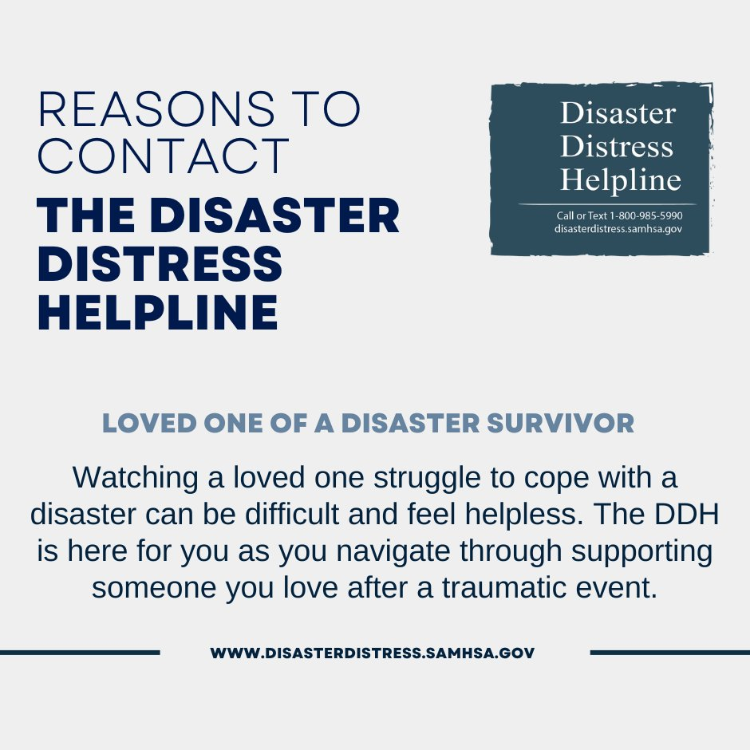According to the National Institute of Mental Health, it is estimated that more than one in five U.S. adults live with a mental health condition (57.8 million in 2021). The Americans with Disabilities Act (ADA) provides protections for individuals with such conditions, and the following resources contain helpful information on mental health-friendly workplace policies and practices:
- Mental Health Conditions in the Workplace and the ADA– ADA National Network
- Mental Health at Work – U.S. Department of Labor
- Workplace Mental Health Toolkit – Employer Assistance and Resource Network on Disability Inclusion (EARN)
- Mental Health Conditions: Resources for Job Seekers, Employees, and Employers – U.S. Equal Employment Opportunity Commission
- Accommodation and Compliance: Mental Health Conditions – Job Accommodation Network

In Pennsylvania, there are several resource lines that can provide 24/7 support to callers:
- PA 211 or Text Your Zip Code to 898-211
- The Support and Referral Line offers crisis assistance 24/7 at 1-855-284-2494 (TTY: 724-631-5600)
- Pennsylvania Crisis Text Line: Text “PA” to 741-741
Nationally, there are several other crisis resources available to Pennsylvanians:
Disaster Distress Helpline Call 1-800-985-5990 or Text 1-800-985-5990 (see below)
National Suicide Prevention Lifeline: 1-800-273-TALK (8255)
LÃnea Nacional de Prevención del Suicidio: 1-888-628-9454
Veteran Crisis Line: 1-800-273-TALK (8255)
Get Help Now Hotline (for substance use disorders): 1-800-662-4357
FindSupport.gov, a user-friendly website, designed for the general public, to help people identify available resources, explore unbiased information about various treatment options, and learn how to reach out to get the support they need for issues related to mental health, drugs, or alcohol.
Pennsylvania Sexual Assault Helpline: 1-888-772-7227 or https://pcar.org/help-in-pa
National Domestic Violence Helpline: 1-800-799-7233 or www.PCADV.org
Hope Has a New Number: 9-8-8 – National Suicide Prevention Lifeline (see below)
————————————————————————————————————————————-

| We can all help prevent suicide. The 988 Lifeline provides 24/7, free, and confidential support for people in distress. It offers prevention and crisis resources for you or your loved ones and promotes best practices for professionals in the United States. |
The 988 Lifeline now offers new American Sign Language services for callers who are deaf or hard of hearing and who may need suicide, mental health, or substance use crisis support. Visit http://988lifeline.organd select “ASL Now.”




The Office of Health Equity in the PA Department of Health has developed an Implicit Bias Toolkit. This is toolkit, which is intended for those working in healthcare settings, can provide a lot of great resources and information surrounding the reduction of implicit and explicit bias in our work as well. You can find the toolkit at Implicit Bias Toolkit. Other useful resources can be found online to help you consider the manifestation and impact of biases in our daily lives. One example is Harvard University’s Project Implicit.
Mental Health Resources and Treatments Available for Veterans
Veterans face a number of challenges during and after military involvement. According to NIH, as many as 13.5% of veterans who served during the Iraq and Afghanistan crises had PTSD. To help assure that veterans have access to the support and resources they need, Solara Mental Health has produced an article on the different types of therapy for veterans – https://solaramentalhealth.com/therapy-for-veterans/
National Guidelines for Child and Youth Behavioral Health Crisis Care
The U.S. Department of Health and Human Services (HHS), through the Substance Abuse and Mental Health Services Administration (SAMHSA), has released a new report, National Guidelines for Child and Youth Behavioral Health Crisis Care, which describes the urgent need to improve crisis response services for children, youth, and families and provides guidance on how communities can address the existing gaps in care for youth. Read more.
Are you working with children who are in distress? Spiritual First Aid has developed Helping Children Cope with Traumatic Events in response to the Sandy Hook Elementary School tragedy. It has since been translated into Spanish, French, Portuguese, Korean, Ukrainian, and Polish. This free downloadable booklet provides practical guidance for anyone who wants to support children in the wake of trauma. Helping Children Cope with Traumatic Events provides readers with an overview of common reactions to violent acts and gives concrete steps for caring for children’s emotional and spiritual needs.
HHS Partnership Center Toolkit: Youth Mental Health and Well-being in Faith and Community Settings
From the Surgeon General for the United States to parents in homes across the country, people are recognizing that our nation’s youth are experiencing unprecedented mental health challenges. Data supports this growing concern. More than 40 percent of teenagers state that they struggle with persistent feelings of sadness or hopelessness, and more than half of parents and caregivers express concern over their children’s mental well-being. The HHS Center for Faith-Based and Neighborhood Partnerships has developed a toolkit that can help. The toolkit highlights ways in which faith and neighborhood leaders can promote health and wellbeing in their communities.
